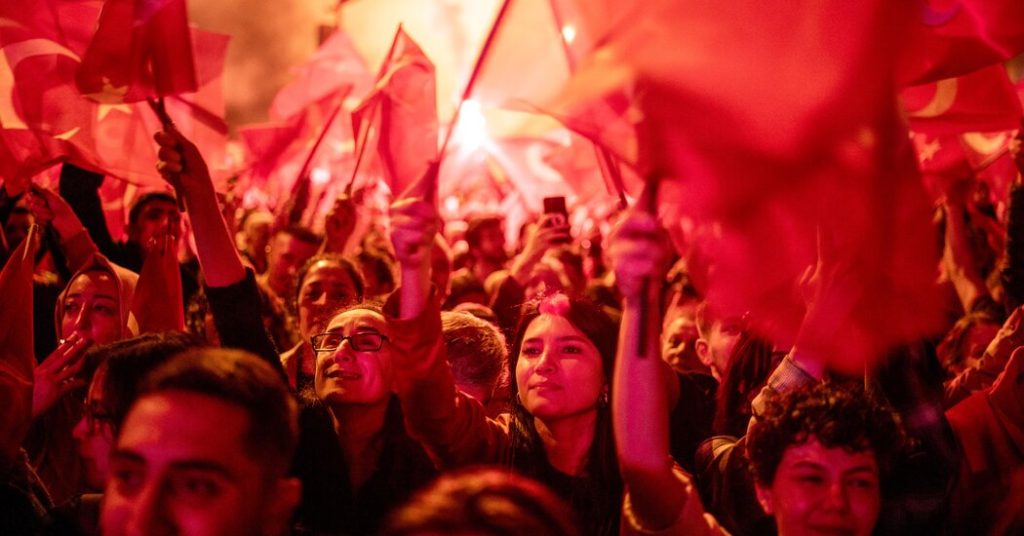The mayor of Istanbul, Ekrem Imamoglu, won a stinging re-election victory against President Recep Tayyip Erdogan and his ruling party, solidifying his status as a star in the political opposition. Imamoglu’s win marked his third victory over Erdogan’s Justice and Development Party, garnering 50% of the votes compared to the ruling party’s candidate, Murat Kurum, who received 40%. This victory was part of a broader trend of the opposition making significant gains in local elections across Turkey, maintaining control in major cities like Istanbul, Ankara, and Izmir, while also securing additional cities.
Imamoglu’s victory in Istanbul, Turkey’s largest city and economic powerhouse, was seen as a significant blow to Erdogan and his party, who had previously alleged electoral irregularities and ordered a rerun of the 2019 election in which Imamoglu first won. The race between Imamoglu and Kurum was personal, with Erdogan supporting Kurum, a former minister and lawmaker in his party, who marketed himself as a technocrat focused on improving services and earthquake preparedness in Istanbul. Erdogan’s long history in Istanbul, where he previously served as mayor, added to the significance of Imamoglu’s victory.
Imamoglu’s win highlighted his potential as a presidential contender in the future, with many opposition voters viewing him as uniquely capable of defeating Erdogan’s party. The significant economic and political importance of Istanbul, home to 16 million people and a key generator of Turkey’s economic output, added to the stakes of the election. The mayor’s control over municipal companies, which employ thousands of staff, provides opportunities for political patronage and reward for supporters, further intensifying the competition.
The election results reflected the broader political landscape in Turkey, where Erdogan’s party faced setbacks and the opposition gained ground. The economic challenges facing the country, including a cost-of-living crisis and currency devaluation, contributed to voter discontent. While Erdogan did not concede defeat in specific races, he acknowledged the setback his party had faced and pledged to examine the reasons behind it. The impact of the election on future presidential contests and the direction of Turkish politics in the coming years was a subject of speculation and analysis among pundits.
Imamoglu’s underdog status and ability to connect with voters through his campaign focused on local issues, such as wastewater disposal, transportation, and social welfare programs, resonated with his supporters. His portrayal of himself as a champion of the people, fighting against political elites seeking to assert control over the city, appealed to many disillusioned with Erdogan’s government. The potential for a shift in the political landscape and the empowerment of the opposition were seen as significant outcomes of Imamoglu’s victory in Istanbul.
The implications of the election results extend beyond Istanbul and have the potential to reshape the balance of power in Turkey leading up to the next presidential election in 2028. Erdogan’s hold on power, characterized by accusations of undemocratic practices, may face further challenges as the opposition gains momentum. The coming days will offer more insights into the official results and the long-term implications of Imamoglu’s triumph in Istanbul for the future of Turkish politics.


